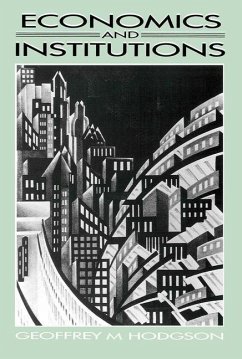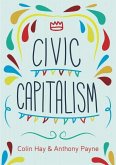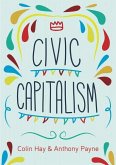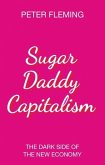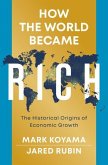Traditionally, economists have attributed consistency and rational calculation to the action of 'economic man'. In a powerful challenge to orthodox thinking, Geoffrey Hodgson maintains that social institutions play a central and essential role in molding preferences and guiding action: institutions are regarded as enabling action rather than merely providing constraints.
From this perspective, the author takes on the 'free marketers' such as Milton Friedman and the 'new institutionalism' of Oliver Williamson. He argues against the neo-classical and Austrian views of the operation of markets, offering instead a convincing new synthesis of the work of Keynes, Veblen, Simon and Marx. Taking up the implications of his argument, Hodgson calls for a radically new policy perspective based on structural reform and institutional intervention.
This work will be required reading for economics students in their second and third years and will be of interest to students and academics throughout the social sciences.
Hinweis: Dieser Artikel kann nur an eine deutsche Lieferadresse ausgeliefert werden.
From this perspective, the author takes on the 'free marketers' such as Milton Friedman and the 'new institutionalism' of Oliver Williamson. He argues against the neo-classical and Austrian views of the operation of markets, offering instead a convincing new synthesis of the work of Keynes, Veblen, Simon and Marx. Taking up the implications of his argument, Hodgson calls for a radically new policy perspective based on structural reform and institutional intervention.
This work will be required reading for economics students in their second and third years and will be of interest to students and academics throughout the social sciences.
Hinweis: Dieser Artikel kann nur an eine deutsche Lieferadresse ausgeliefert werden.
"I think that this is a superb book ... what Hodgson has done is to bring together a wide range of themes, and weave them together in a particularly persuasive way. It is a must read for economists predisposed to question contemporary orthodoxy."
Richard R. Nelson, Review of Political Economy
"This is a landmark work in the evolution of institutional economics."
Public Choice
"This book is an excellent read. Written with great care, refreshing intellectual honesty and with a wide canvas of the relevant literature it should be on the "essential" reading lists of all final year and post-graduate economics students. It will also be of great interest to students of the other social sciences who would like a point of entry to the inner mysteries of the faith."
Norman Clark, University of Sussex
Richard R. Nelson, Review of Political Economy
"This is a landmark work in the evolution of institutional economics."
Public Choice
"This book is an excellent read. Written with great care, refreshing intellectual honesty and with a wide canvas of the relevant literature it should be on the "essential" reading lists of all final year and post-graduate economics students. It will also be of great interest to students of the other social sciences who would like a point of entry to the inner mysteries of the faith."
Norman Clark, University of Sussex

